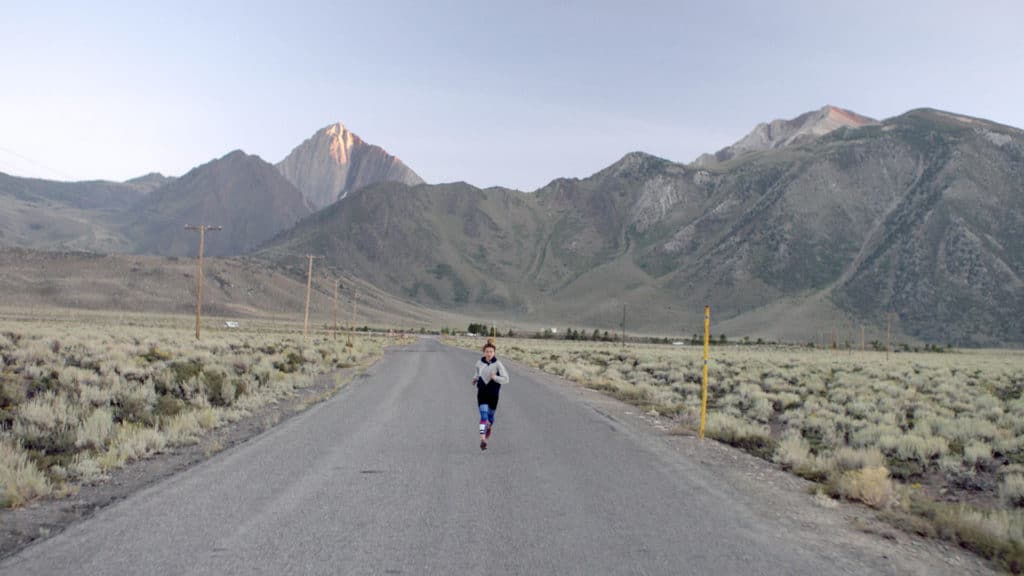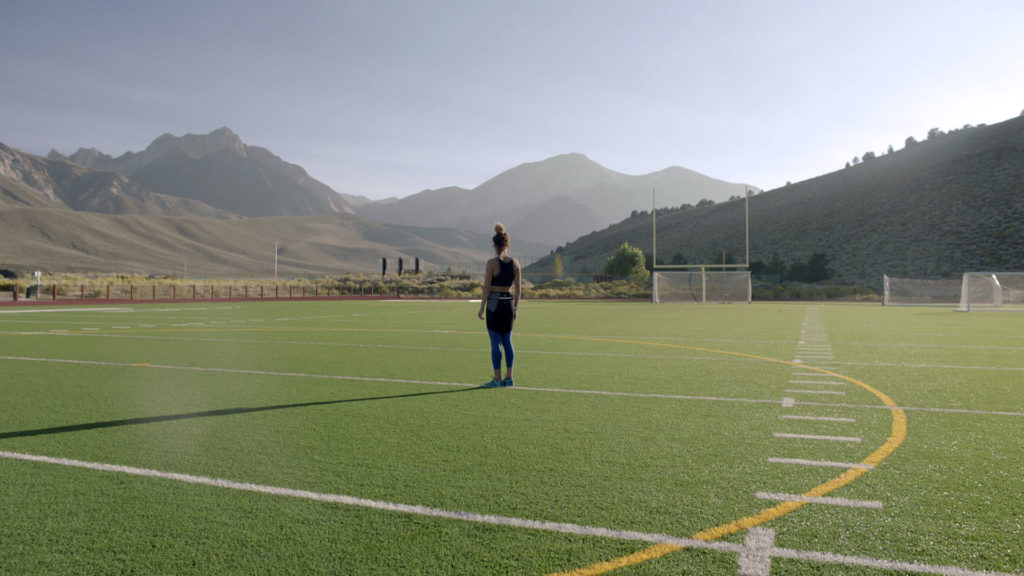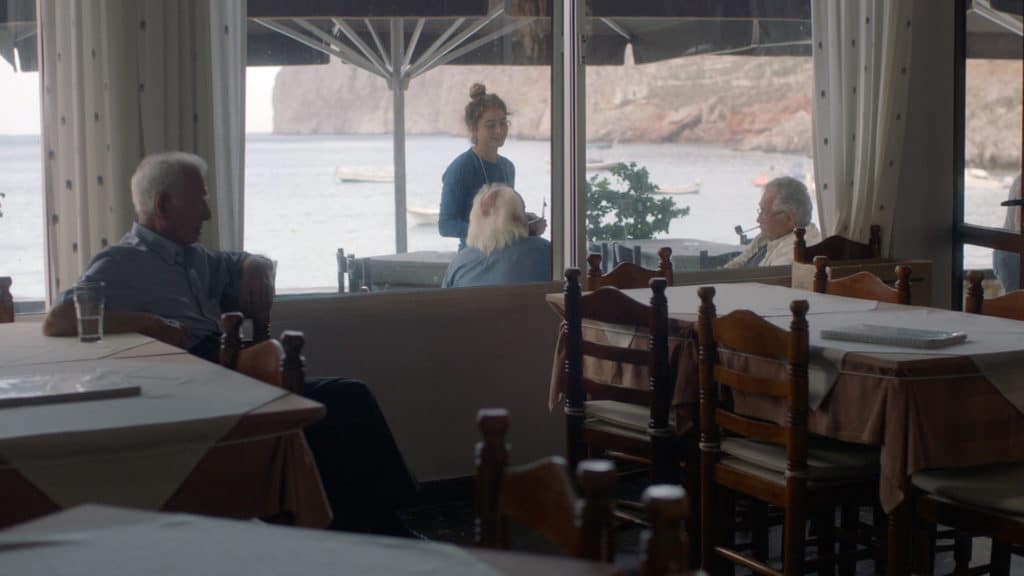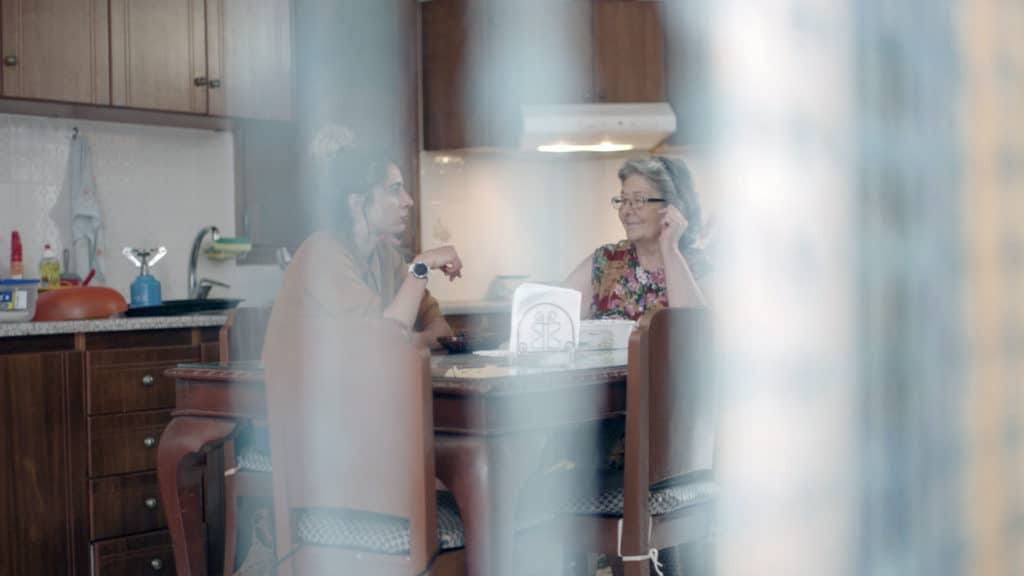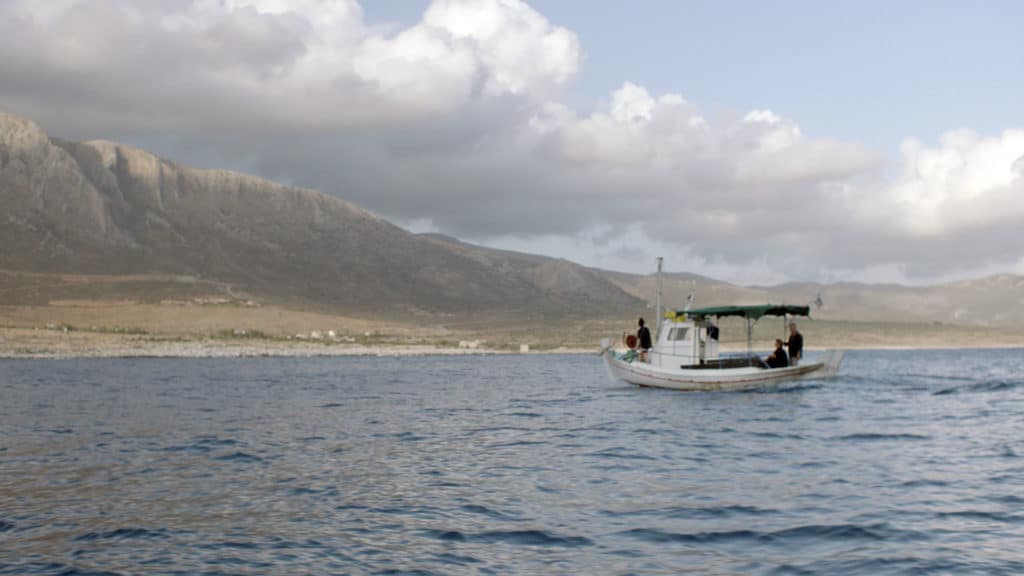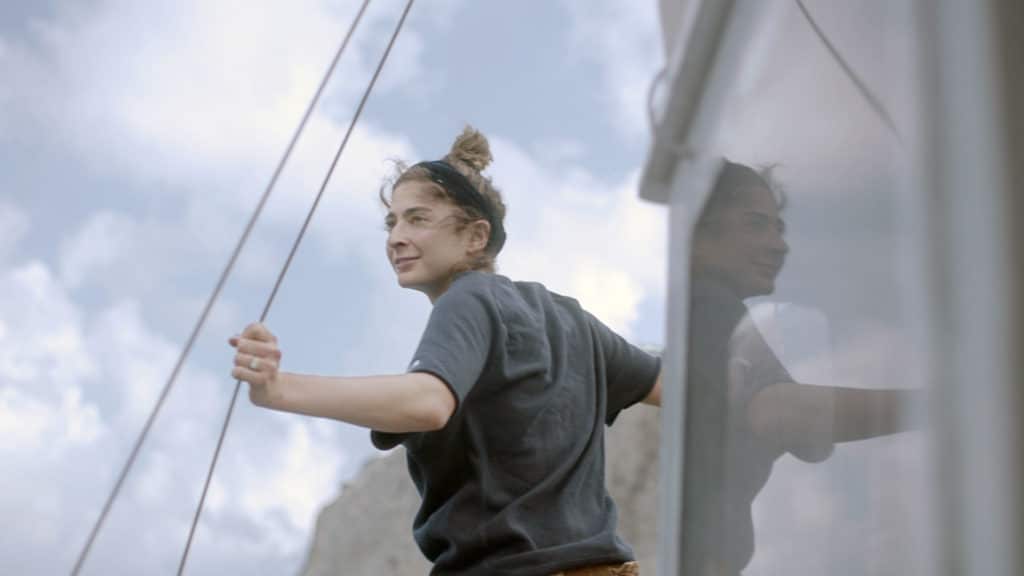Sitting in the Panathenaic Stadium on a recent trip to Athens, Greece, Olympian Alexi Pappas imagined previous generations of people who, since 1896, have sat in the same seats watching the final moments of the pinnacle Olympic event — the marathon.
She imagined her mentor, fellow Olympian and former teammate Deena Kastor, winning a bronze medal in the stadium at the 2004 Olympic Games, and she felt the excitement of her own journey to her marathon debut in the 2018 Chicago Marathon.
“It was a good reminder of the larger tradition that I am joining, that I get to be a part of,” Pappas says. “This is where the marathon began. It’s not an arbitrary distance — it has a significance in Greece.”
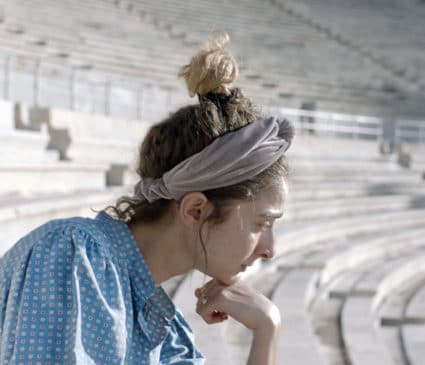
Pappas, a California native who is a dual Greek-American citizen, competed for Greece at the 2016 Summer Olympics in Rio de Janeiro to honor her yia yia, her father’s mother, and the most significant female figure in her life.
Remarkably, Pappas, 28, is not only a professional runner; she is also a poet, writer and filmmaker who co-directed “Tracktown” (2016) with her husband Jeremy Teicher. She is working on a book of essays to be published by Random House next spring.
During her recent trip to Greece as part of the Marriott StoryBooked documentary series, where she stayed at the The Westin Resort, Costa Navarino, Pappas visited the country for the first time to travel not for sport, but to actually experience the culture of the country she represents in the Olympics and internationally.
“For me, being Greek starts from a very young age with the connection to the only female in my family life,” she said about her yia yia.
“She is from a small village in Greece, didn’t grow up playing sport. We’ve always been amused by each other — what I am doing now is so different from what she’s done in her time, but we both really respect each other, and she gave me this gift of dual citizenship.”
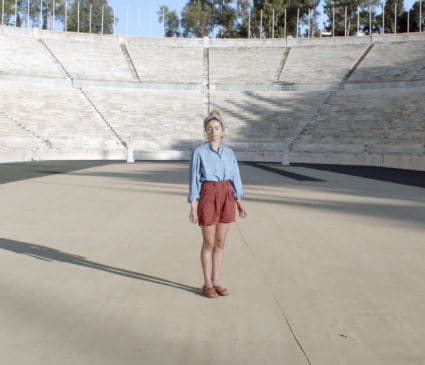
Pappas chose to represent Greece in the Olympics because she has a unique opportunity to have an impact for women in sport.
“As an athlete, being Greek is about relentlessly paving paths,” Pappas said. Women’s running is just now developing in Greece like it was here in the United States years ago when Kastor and Joan Benoit Samuelson, who won gold in the first women’s Olympic Marathon in 1984, were winning medals and inspiring younger generations of American athletes on the Olympic stage.
“I have the unique opportunity, right now, to make an impact in the place where the Olympics began.”
Inspired by her travels and the women who have paved the way for her in running and life, Pappas returned home to Mammoth Lakes, California, to write about her experiences abroad.
She writes personal stories of running and travel and life, blurring the distinction of athlete and artist.
“It’s good to write in new places. I take really great notes while I am traveling — people watching, observing, absorbing — to inform my writing,” Pappas says while drinking a cup of coffee at a local café before an early morning run in Shady Rest Park.
“[My upcoming] book is a memoir of essays about how I got from point A to today — my expanding journey as a person. Running and being Greek have literally taken me the farthest.”
Running and being Greek have literally taken me the farthest.
ALEXI PAPPAS
A WOMAN IN MOTION
A journey to Greece connects the writer to her roots
Pappas’s mother died when she was just four years old. From a young age she looked up to her yia yia and continues to seek inspiration from strong female role models like Kastor and Samuelson.
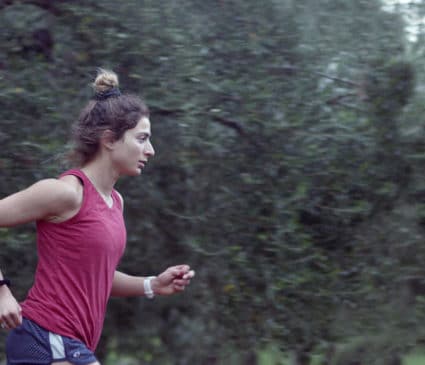
As a young girl, Pappas played soccer and ran track and cross country, but it wasn’t until she was running at Dartmouth University and later at the University of Oregon that she became highly competitive and realized she had the potential to become a professional athlete and Olympian.
Before she settles in to write each day, Pappas joins her Mammoth Track Club teammates for a training run. They often run in a local park on dirt paths that wind through a Jeffrey pine forest or around the lake’s basin in the mountains above town.
To be in a position to show (girls) that you can grow up with confidence is a privilege.
ALEXI PAPPAS
When she is running, she is entirely committed to the prescribed effort — whether it is a workout or an easy run in the woods. When she naps, she naps to the best of her ability. Same for her daily stretching routine. And writing and creative time.
Whatever she is doing, she does it to the best of her ability.
“Running is one way, and a really good way, to explore my outermost limits physically and mentally,” she said. “It has given me the opportunity and a stage and platform to reach people and explore new places.”
“Because of running, I have an audience of young athletes, mostly girls. To be in a position to show them that you can grow up with confidence is a privilege. I have uniquely been able to reach them through running and writing, and that’s one of the reasons I still run — to have a voice to help impressionable girls.”
Visiting Greece this past spring, Pappas was able to imagine the life her yia yia had growing up. She had the opportunity to connect with girls and observe their way of life. And she had the opportunity to feel the country’s historic running culture.
“Normally I am so focused on a race when I travel, so to go somewhere when there was time to stop on the side of the road and look around, not have a schedule, was outside of my comfort zone in a good way,” she said. “It was beyond pretty cool and something I don’t allow myself often.”
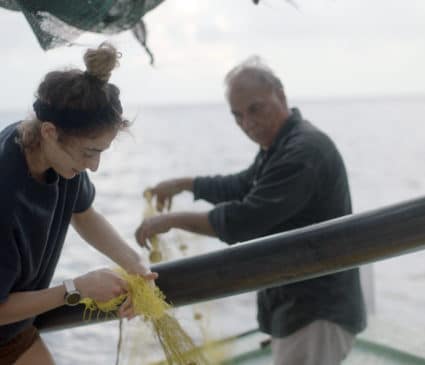
According to running lore, the modern Olympic marathon is a commemoration of Pheidippides’ historic 40-kilometer run from Marathon to Athens, reporting news of victory over the Persians in the Battle of Marathon, before he collapsed and died. The marathon race was one of the original modern Olympic events in 1896 in Athens.
“Whenever someone knew that I was an Olympian, there was such warmth and excitement and support. It was something that I felt uniquely in Greece,” she said. “Sometimes running feels like an individual effort — it’s really not, when you understand you are a part of a bigger tradition.”
Though the country has pride in sport and specifically the marathon, girls rarely participate in athletics as much as boys. Pappas sees her role as a Greek Olympian as larger than just chasing fast times. She has the unique opportunity to inspire and motivate girls to participate in sports and to expand their understanding of what a woman can be.
To expand their ceiling of what a female can be, is an important thing.
ALEXI PAPPAS
“The girls, they see me and see that we look the same,” Pappas said. Girls in small villages watched the boys play sports, but seeing Pappas run made them curious. “They could all be my little sisters. They wanted to know why I looked so strong.”
They asked why she was running and saw that it’s because she doesn’t watch the boys play sports; she is an athlete, too.
“Just showing them, to expand their ceiling of what a female can be, is an important thing.”
The places she visited were off the beaten path, small villages that Pappas imagines are like where her yia yia is from. After traveling throughout the country for a couple of weeks, she came home to Mammoth Lakes with a better understanding of the country she is representing internationally when she is racing.
“A lot of my writing is about mentorship. How do you become the female adult that you are without the fixture that some people have in a mom? And that for me is absorbing from everyone else the qualities that I would like to have,” Pappas said. “To go somewhere, like Greece, where I get to have new people to watch, to imitate and absorb, that [definitely informs] my writing … You are never too old to go out and get it — it’s like getting new ingredients for your crock pot.”
